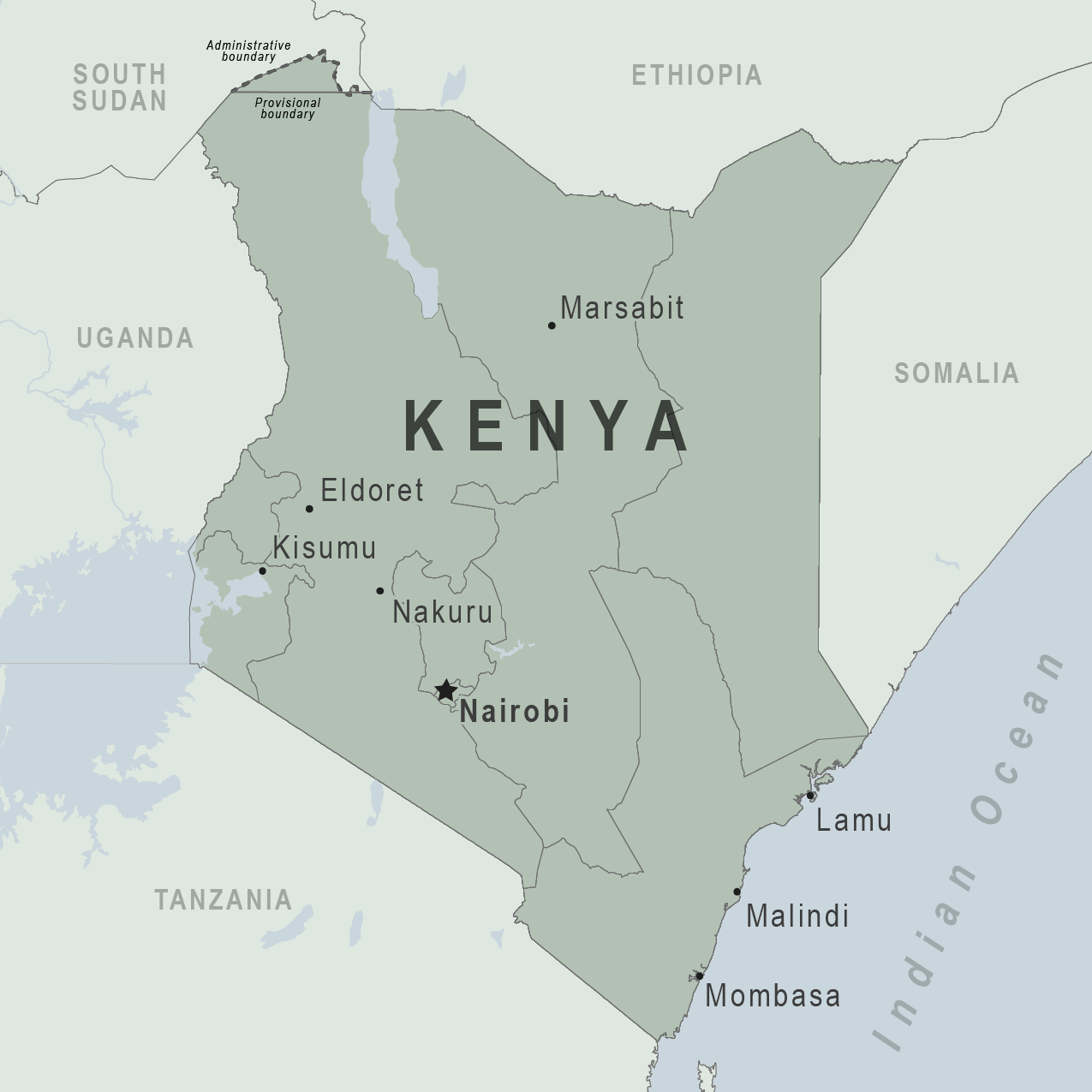Health Information for Travelers to Kenya
Zika virus is a risk in Kenya.
- Pregnant women should not travel to Kenya because Zika infection during pregnancy can cause serious birth defects.
- Partners of pregnant women and couples planning pregnancy should know possible risks to pregnancy and take preventive steps. Before travel, those planning pregnancy should talk to their doctor or other healthcare provider.
- All travelers should follow steps to prevent mosquito bites during and after their trip. Travelers should also use condoms during and after their trip to prevent sexual transmission of Zika.
- Learn more about how to protect against getting Zika while traveling to Kenya and stop its spread to others back home.

On This Page
- Vaccines and Medicines
- Stay Healthy and Safe
- Healthy Travel Packing List
- Travel Health Notices
- After Your Trip
Vaccines and Medicines
Check the vaccines and medicines list and visit your doctor (ideally, 4-6 weeks) before your trip to get vaccines or medicines you may need.
| Find Out Why | Protect Yourself | |
|---|---|---|
All travelersYou should be up to date on routine vaccinations while traveling to any destination. Some vaccines may also be required for travel. |
||
| Routine vaccines | Make sure you are up-to-date on routine vaccines before every trip. These vaccines include measles-mumps-rubella (MMR) vaccine, diphtheria-tetanus-pertussis vaccine, varicella (chickenpox) vaccine, polio vaccine, and your yearly flu shot. |   |
Most travelersGet travel vaccines and medicines because there is a risk of these diseases in the country you are visiting. |
||
| Hepatitis A | CDC recommends this vaccine because you can get hepatitis A through contaminated food or water in Kenya, regardless of where you are eating or staying. |   |
| Typhoid | You can get typhoid through contaminated food or water in Kenya. CDC recommends this vaccine for most travelers, especially if you are staying with friends or relatives, visiting smaller cities or rural areas, or if you are an adventurous eater. |   |
Some travelersAsk your doctor what vaccines and medicines you need based on where you are going, how long you are staying, what you will be doing, and if you are traveling from a country other than the US. |
||
| Cholera | Cholera is a risk in parts of Kenya. CDC recommends this vaccine for adults who are traveling to an area of active cholera transmission. Most people do not travel to areas of active cholera transmission. Avoiding unsafe food and water can also prevent many cholera infections. Cholera is rare in travelers but can be severe. Certain factors may increase the risk of getting cholera or having severe disease (more information). |  |
| Hepatitis B | You can get hepatitis B through sexual contact, contaminated needles, and blood products, so CDC recommends this vaccine if you might have sex with a new partner, get a tattoo or piercing, or have any medical procedures. |    |
| Malaria | Talk to your doctor about how to prevent malaria while traveling. You may need to take prescription medicine before, during, and after your trip to prevent malaria, especially if you are visiting low-altitude areas. See more detailed information about malaria in Kenya. |  |
| Meningitis (Meningococcal disease) | CDC recommends this vaccine if you plan to visit parts of Kenya located in the meningitis belt during the dry season (December–June), when the disease is most common. |   |
| Rabies | Rabies can be found in dogs, bats, and other mammals in Kenya, so CDC recommends this vaccine for the following groups:
|
   |
| Yellow Fever | Health recommendation: Yellow fever is a risk in certain parts of Kenya, so CDC recommends the yellow fever vaccine for travelers 9 months of age or older to these areas.
Country entry requirement: The government of Kenya requires proof of yellow fever vaccination if you are traveling from a country with risk of yellow fever (this does not include the US – for complete list, see Countries with risk of yellow fever virus (YFV) transmission. For more information on recommendations and requirements, see yellow fever recommendations and requirements for Kenya. Your doctor can help you decide if this vaccine is right for you based on your travel plans. |
|
Courtesy – CDC
